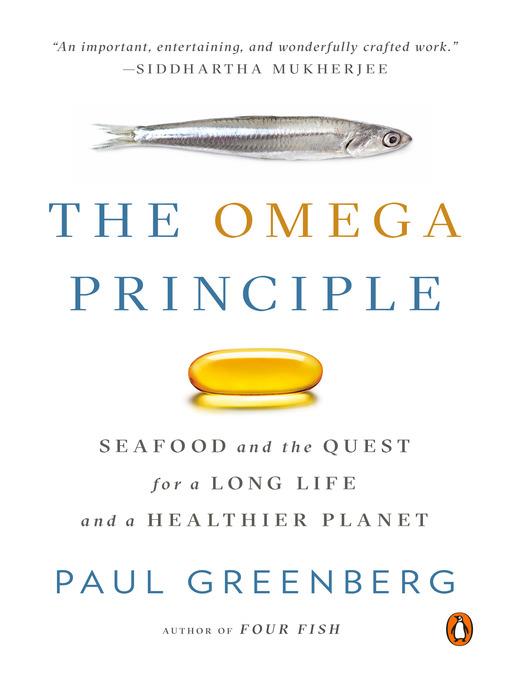
The Omega Principle
Seafood and the Quest for a Long Life and a Healthier Planet
کتاب های مرتبط
- اطلاعات
- نقد و بررسی
- دیدگاه کاربران
نقد و بررسی

May 15, 2018
The James Beard Award winner and New York Times contributor dives into the world of "an oil that some believed would help us be much better than we are."The title refers to omega-3 fatty acids, essential nutrients in seafood but increasingly consumed as fish oil capsules, perhaps America's leading nutritional supplement and a burgeoning multibillion-dollar industry. However, fish don't make omega-3s; it's manufactured by phytoplankton, minuscule plants at the bottom of the oceanic food chain. Tiny crustaceans called krill eat phytoplankton, and they are eaten in turn by fish, seals, whales, penguins, and increasingly by humans. Popular writers often extol the benefits of omega-3s. Greenberg (American Catch: The Fight for Our Local Seafood, 2014) reviews the shaky evidence and delivers a penetrating analysis of its science, business, and future, and he also turns his attention to all aspects of the exploitation of sea life. Wild land animals make up a tiny fraction of our diet, but fleets of ships have been sweeping the seas for generations. Most readers will sit up at the news that this provides not only food and supplemental oil, but massive quantities of fertilizer and animal feed. Industry spokesmen maintain that scientific management will preserve the supply, but Greenberg interviews plenty of experts who disagree. "Unlike small plots of land that farmers for millennia have tended with care...no one has ever truly cared about the sea," he writes. "It has been treated as a mine from which wealth is taken and never returned." In the obligatory how-to-fix-it final chapter, the author describes dedicated individuals and their ingenious techniques for preserving these resources. All seem exciting, at least in theory. Greenberg also includes specifics of a healthy, life-extending diet; it requires omega-3s--but not in pill form.The author offers little good news but provides an expert review of the human exploitation of marine life.
COPYRIGHT(2018) Kirkus Reviews, ALL RIGHTS RESERVED.

June 1, 2018
In this, the third of his "marine trilogy" (preceded by Four Fish and American Catch), Greenberg explores the history, science, and business behind omega-3s. At the story's center is the fish-oil supplements industry, a multi-billion-dollar affair driven by health-conscious consumers. With reporter's zeal, the author goes aboard vessels as they "vacuum" Chesapeake Bay menhaden, Peruvian anchoveta, and Antarctic krill--small schooling animals crucial in the marine food web as prey for seabirds, whales, and tuna. "One in every four fish caught on earth," Greenberg points out, "is 'reduced' into oil and meal and used for agriculture, land animal husbandry...and fish farming." While his accounts of the pillage and waste of ocean life appall, this is not a complete downer. Greenberg travels the world to meet scientists and innovators trying to get omega-3 from nonfish sources. The narrative moves easily between macro- and microtopics, between societal issues, such as current, unsustainable food systems, and individual concerns, including our choices at the seafood counter. Recipes are included. VERDICT With a writing style every bit as fluid and engaging as the voice you hear in his TED talks, Greenberg, a lifelong fisherman, makes a complex subject fascinating and accessible.--Robert Eagan, Windsor P.L., Ont.
Copyright 2018 Library Journal, LLC Used with permission.

























دیدگاه کاربران